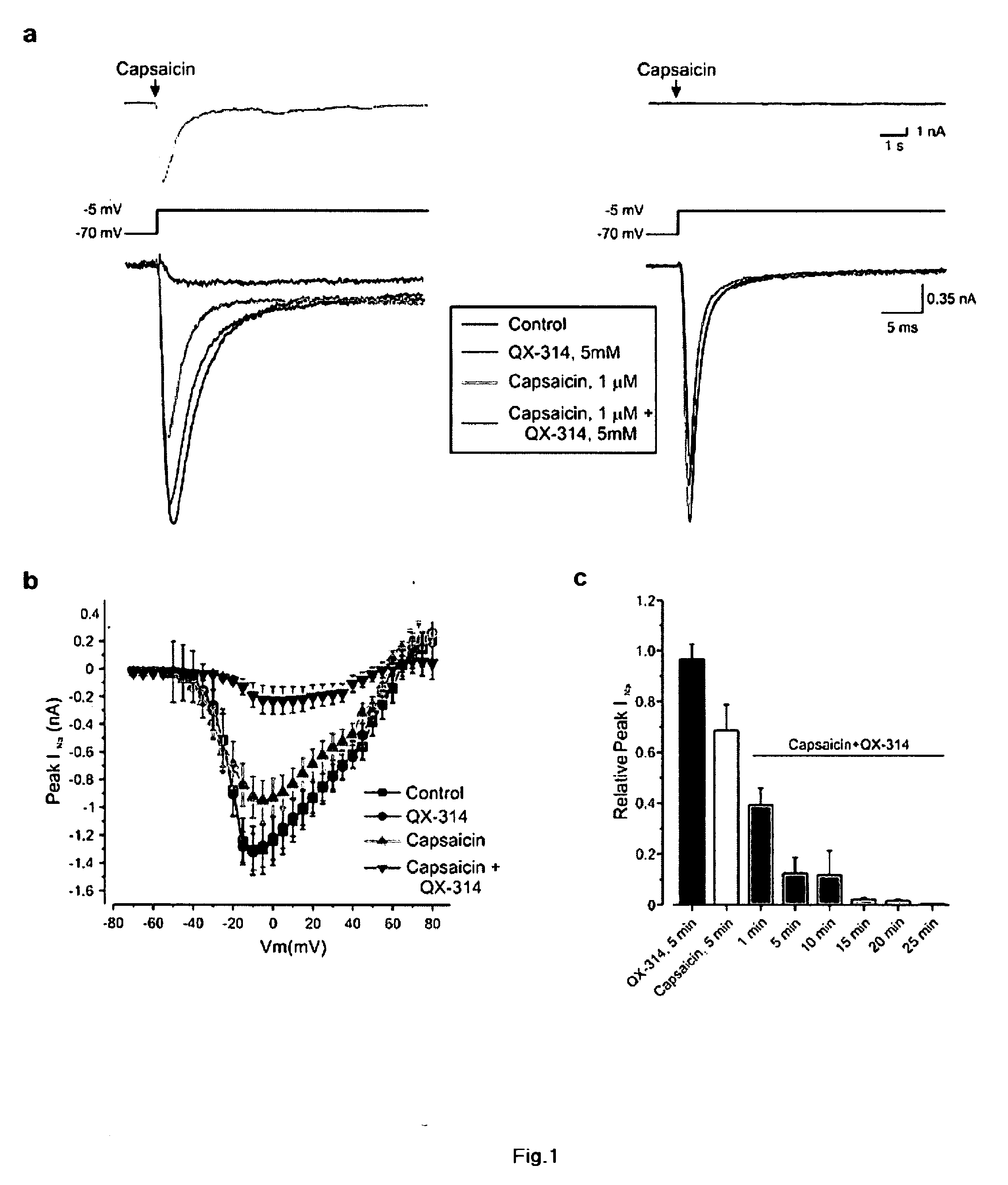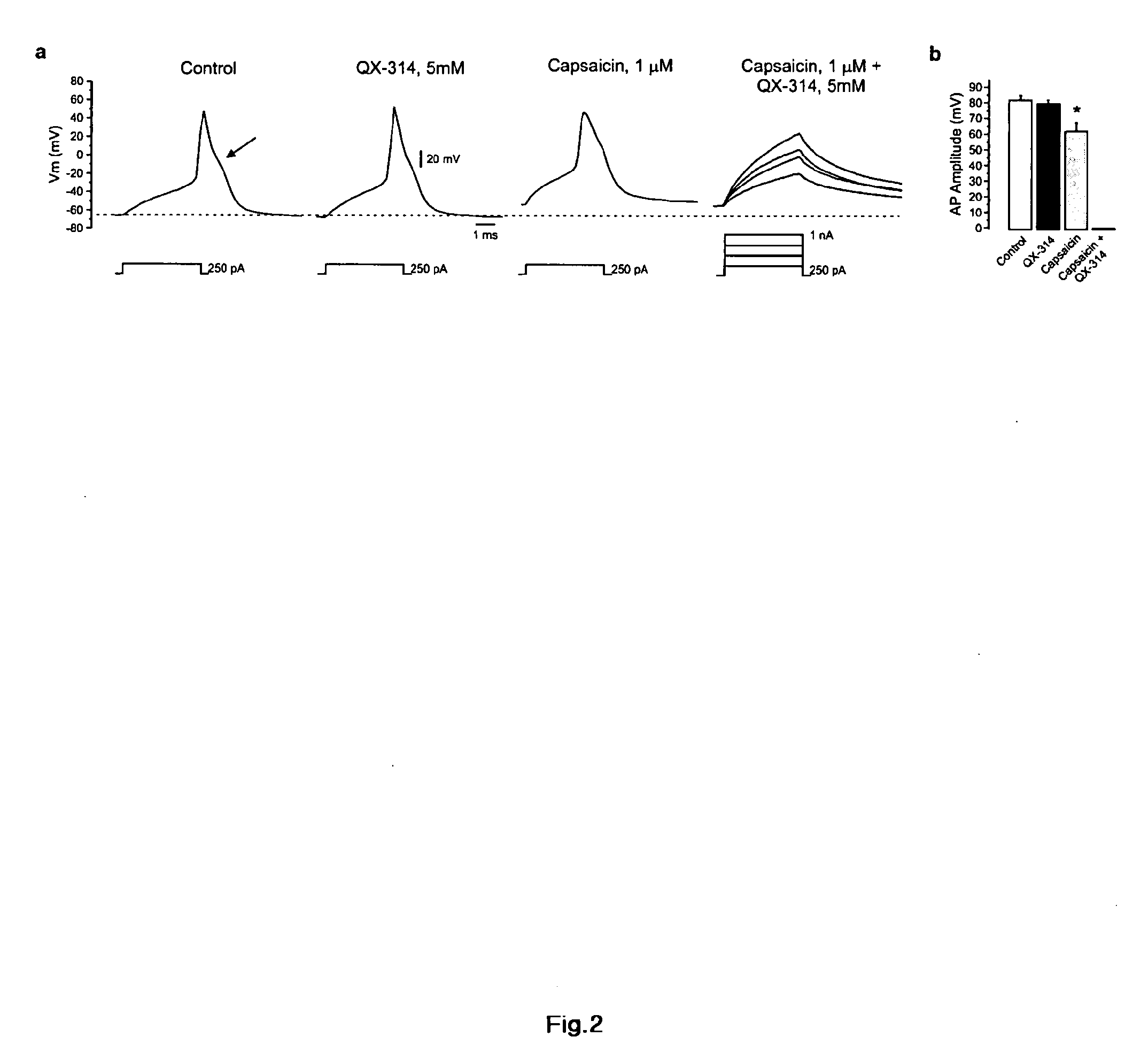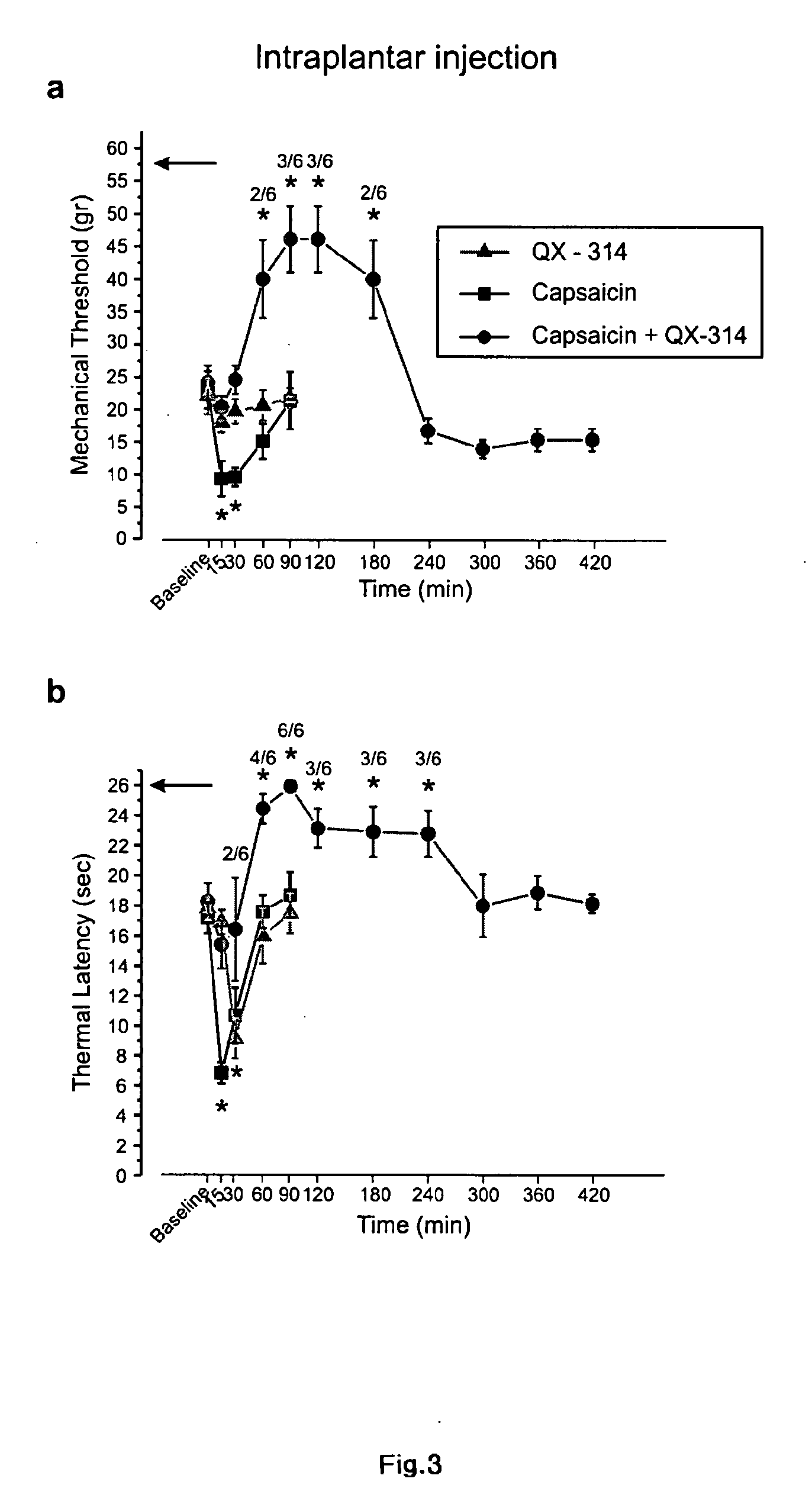Methods, compositions, and kits for treating pain and pruritis
a technology for pruritis and pain, applied in the field of methods, compositions, and kits for treating pain and pruritis, can solve the problems that the administration of local anesthetics also produces unwanted or deletrious effects
- Summary
- Abstract
- Description
- Claims
- Application Information
AI Technical Summary
Benefits of technology
Problems solved by technology
Method used
Image
Examples
example 1
[0159]We recorded current through voltage-dependent sodium channels using whole-cell voltage clamp recordings from adult rat DRG neurons. To select for nociceptors, we recorded from small (24±5 μm; n=25) neurons and tested the neurons for the expression of TRPV1 receptors by a short (1-sec) application of 1 μM capsaicin. In 25 / 25 of small neurons tested, capsaicin produced a prolonged (10±3 sec) inward current (FIG. 1A, upper panel), consistent with the neurons being nociceptors. Sodium currents were elicited by depolarizing steps from a holding potential of −70 mV. Bath application of 5 mM QX-314 alone had a minimal effect on sodium current (decrease by 3±0.5% after a 5-minute application, n=25) (FIG. 1A, left; b). Application of capsaicin alone (1 μM for 1-10 minutes) reduced sodium current moderately (31±9% inhibition (n=25). However, when QX-314 was applied together with capsaicin, sodium current was nearly totally abolished (inhibition by 98±0.4%, n=25) (FIG. 1A, left; b). As e...
example 2
[0173]We have also shown that eugenol (C10H12O2), an allyl chain-substituted guaiacol, 2-methoxy-4-(2-propenyl)phenol (active ingredient in oil of clove, and a non-pungent agonist of TRPV1 receptors) promotes entry of QX-314 into dorsal root ganglion neurons by activating TRPV1 channels. FIG. 5 depicts voltage clamp recordings of sodium channel current in small dorsal root ganglion neurons. The data show that eugenol alone has a modest inhibitory effect on sodium current (10-20% inhibition). Co-application of eugenol and QX-314 produces progressive block that can be complete after 7 minutes. Two examples are depicted, which are representative of 10 experiments with similar results. As is demonstrated above, external QX-314 alone has no effect while internal QX-314 blocks sodium channels. Thus, these experiments indicate that eugenol promotes entry of QX-314 into dorsal root ganglion neurons by activating TRPV1 channels.
example 3
[0174]FIG. 6 shows the results of co-application of the TRPA agonist mustard oil (MO) (50 μM) and QX-314 (5 mM). MO alone reduces sodium current by 20-30% and reaches a plateau after approximately 3 minutes. Co-application of MO and QX-314 reduced sodium current dramatically.
PUM
| Property | Measurement | Unit |
|---|---|---|
| molecular weight | aaaaa | aaaaa |
| holding voltage | aaaaa | aaaaa |
| w/w | aaaaa | aaaaa |
Abstract
Description
Claims
Application Information
 Login to View More
Login to View More - R&D
- Intellectual Property
- Life Sciences
- Materials
- Tech Scout
- Unparalleled Data Quality
- Higher Quality Content
- 60% Fewer Hallucinations
Browse by: Latest US Patents, China's latest patents, Technical Efficacy Thesaurus, Application Domain, Technology Topic, Popular Technical Reports.
© 2025 PatSnap. All rights reserved.Legal|Privacy policy|Modern Slavery Act Transparency Statement|Sitemap|About US| Contact US: help@patsnap.com



